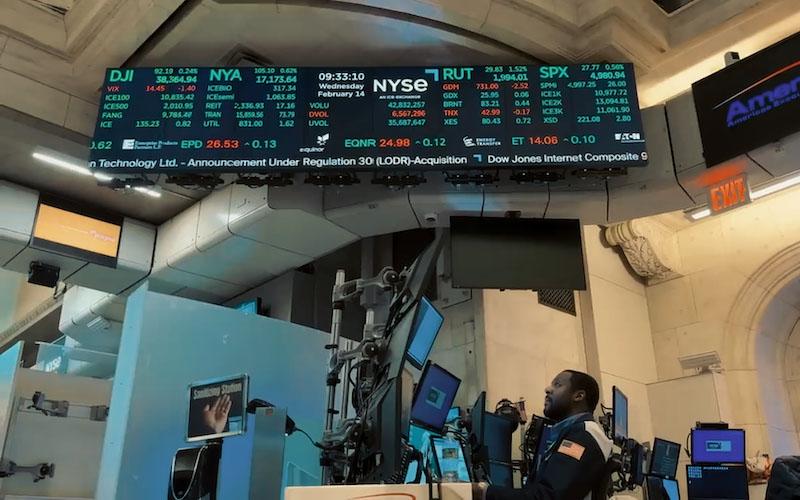Ready to evacuate? A weakening economy and a fading AI deal boom could trigger a US stock market correction.
2025-09-12 18:52:53

“Asking what will trigger the next stock market crash is like asking which snowflake will start the avalanche,” said Peter Berezin, chief global strategist at BCA Research.
In a new research report, Berezin reviewed previous cases of sharp stock market corrections and noted that it is often not a single factor that triggers the sell-off, but rather the accumulation of multiple events, which makes it more difficult to predict when the stock market will begin to plummet.
Take 1987, for example. Before the Black Monday crash, the US trade deficit widened and the dollar depreciated, sparking concerns that the Federal Reserve would be forced to raise interest rates. The 10-year Treasury yield soared to 10% from 7.1% at the beginning of the year. Furthermore, a bill to limit tax breaks for corporate mergers was introduced in the US House of Representatives.
Likewise, the 1998 stock market crash wasn't triggered solely by the collapse of the hedge fund Long-Term Capital Management (LTCM). It was also triggered by the collapse of Peregrine Investment Holdings, Asia's largest private investment bank at the time; concerns that China would be forced to devalue its currency were also a factor, followed by Russia's sovereign debt default.
Even the dot-com bubble burst in 2000 was oversimplified. BCA data shows that it wasn’t just inflated valuations that caused the bubble to burst—it was the Fed’s resumption of rate hikes and a surge in equity supply (net issuance of $9 billion in 1999 versus $59 billion in the first quarter of 2000 alone) that spooked investors.
Moreover, recent stock market corrections have shown that markets can “ignore” adverse factors for a period of time. In the fall of 2021, it was clear that soaring inflation would lead to significant interest rate hikes from the Federal Reserve, but the S&P 500 index still fell 27% from the beginning of 2022 to October of the same year.
However, past stock market plunges also offer a positive signal: full-blown bear markets typically occur during economic downturns. “When the economy remains resilient (as in 1987, 1998, 2020, and 2022), stocks tend to rebound quickly,” BCA said.
Unfortunately, Berezin believes that looking ahead, the two main factors supporting the current bull market - economic resilience and the artificial intelligence boom - will weaken.
The deteriorating labor market demonstrates the fragility of the U.S. economy. Berezin noted, "The seemingly small increase in the unemployment rate is masked by the fact that many people have given up looking for work. If we include those who are not in the labor force but currently want to work, the unemployment rate has risen by 0.76 percentage points since January of this year."
He added that the housing market was "becoming increasingly volatile" and that outside the United States, economic growth had been supported by demand from "preemptive action on tariffs."
Furthermore, while AI represents a long-term growth trend, it is not immune to cyclical economic downturns. BCA noted that companies like Meta Platforms (META) and Alphabet (GOOGL) are highly dependent on advertising, and if consumer spending slows, their advertising revenue will decline significantly.
“Historically, investors tend to get uneasy when free cash flow starts to decline, as we saw in late 2021 when the combined free cash flow of ‘hyperscale tech companies’ such as Amazon (AMZN), Google (GOOG), Meta (META), Microsoft (MSFT), and Oracle (ORCL) temporarily declined,” BCA said.
BCA believes that capital spending by these hyperscale tech companies will not peak until the second half of 2026, but the stock prices of AI-related companies, which currently account for a third of the S&P 500's market value, "will likely plummet long before then." At that time, consumer spending will fall further as stock market wealth shrinks.
Berezin concluded: "While it's impossible to know exactly when global stock markets will peak, there is enough vulnerability in the market right now to justify keeping our 'finger near the exit button'."
- Risk Warning and Disclaimer
- The market involves risk, and trading may not be suitable for all investors. This article is for reference only and does not constitute personal investment advice, nor does it take into account certain users’ specific investment objectives, financial situation, or other needs. Any investment decisions made based on this information are at your own risk.





















